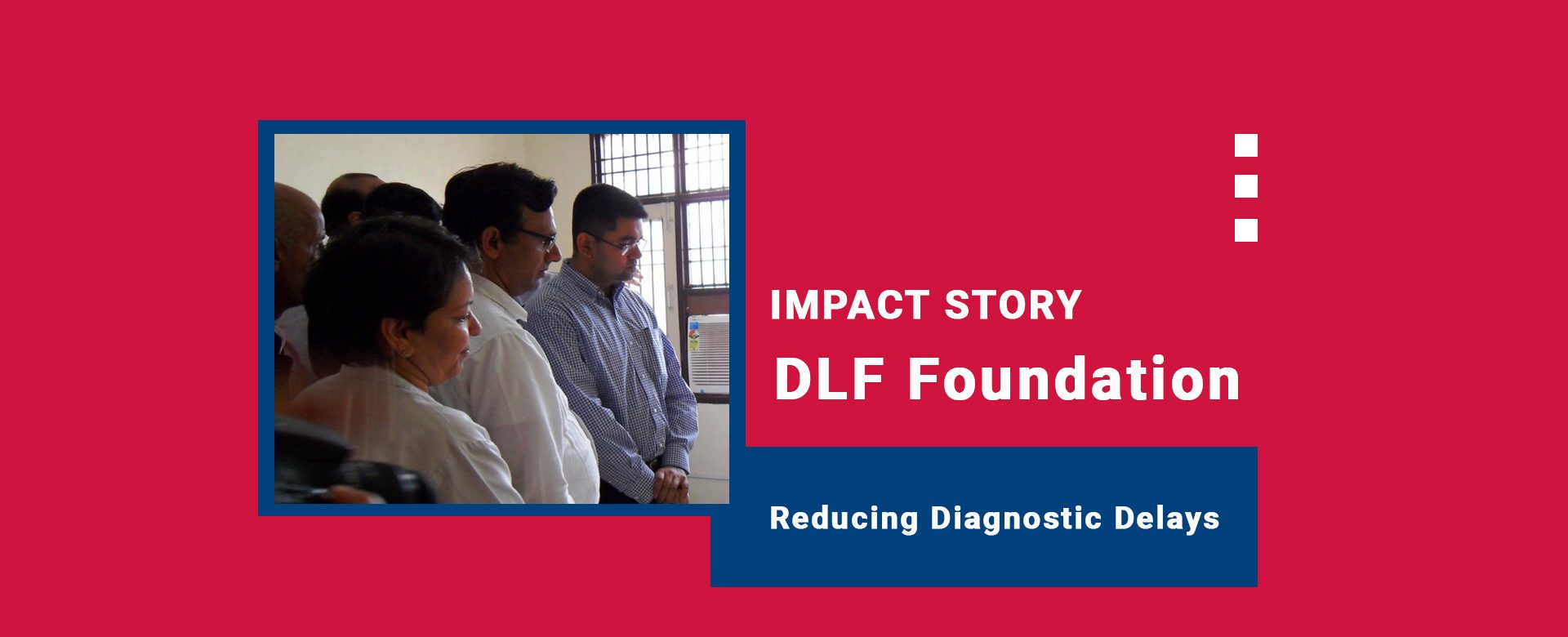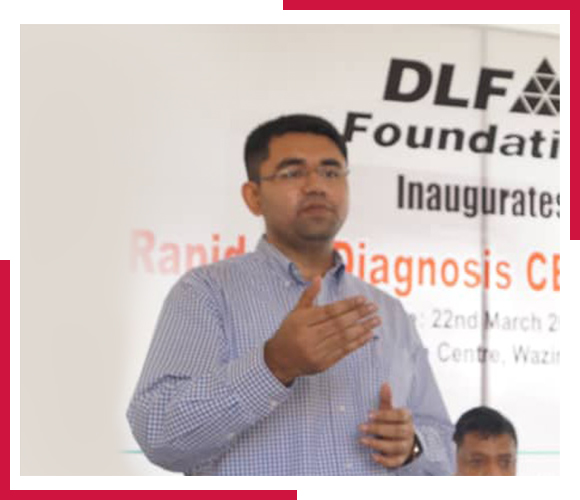
Reducing Diagnostic Delays
The Government Civil Hospital in Gurgaon was the only place one could go to in the region for a free CBNAAT Test. CBNAAT —is a fully automated rapid molecular test that detects TB and drug-resistance strains simultaneously — providing results within two hours, making it currently amongst the most sophisticated technology in TB detection. There are two hundred thousand suspected cases in Haryana, of which 2,500-3,000 cases are reported from Gurgaon alone every year. While the Government program, provides free CBNAAT testing facility to all suspected patients (from the private or public sector), only one machine catering to the high patient burden led to a delay in results. Private clinics in the area charged Rs 5,000 per test, therefore, it was not surprising that affordable diagnostic methods, remained one of the largest challenges in the region.

Intervention
When real-estate giant DLF recognized that Tuberculosis posed a threat to the community, including to its own employees’ productivity and financial conditions, they set out to identify the biggest gaps in the area – realizing the most immediate need was an additional CBNAAT facility. Partnering with the Ministry of Health and Family Welfare, the DLF Foundation set up a CBNAAT machine at the Government Health Centre, Gurgaon. The Foundation additionally partnered with media house, Times Now, to magnify its interventions and spread awareness on the issue. It has also committed to provide nutritional support to the identified MDR TB patients in Delhi-NCR.
Impact
With the CBNAAT machine at the governments’ health centre, there have been significant reduction in the turn-around time of diagnostic results at both the government centers. A seemingly small contribution by the DLF Foundation to the Government program has indeed addressed a critical gap and sustainably added momentum to the program capacity to diagnose and treat TB patients. As per data provided by authorities, till June 2020, 2137 samples were been tested by DLF supported machine out of which 691 were tested positive for MDR-TB.
Key Lessons
The corporates’ intervention that addresses a critical gap, even if it is one-time intensive resource support towards diagnostic equipment to the government program’s will have a long-term impact on increasing access to quality TB care.